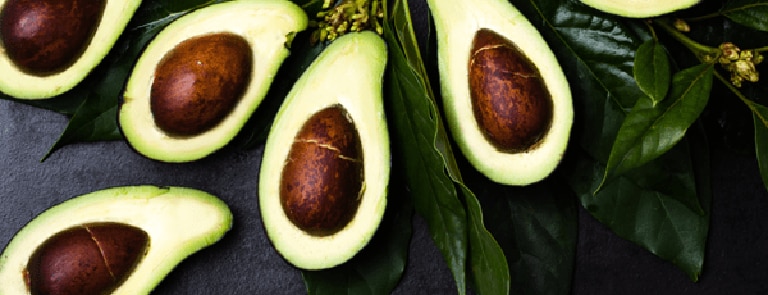Why they don’t need to be the enemy
After decades of avoiding high-fat foods to lose weight, quick fix solutions such as the keto diet have previously garnered celebrity followings, thanks to its promise you could eat as much fat as you liked as long as you slashed protein and carbs.
How does it work?
Carbs are your body’s main energy source, but if you follow a high-fat, low-carb diet, your body is forced to feed off the next-available fuel – fat – breaking it down into ketones, which burn away cleanly.
But indiscriminately gobbling high-fat foods can leave you with a diet rich in the artery-clogging saturated kind. (Although recent research has thrown into question the notion that it is saturated fats blocking up our pipes that leads to heart disease, the current official government advice is still to keep our consumption to a minimum).
Handpicked article:
What causes heart disease?
It’s time to think smarter when switching to a high-fat weight loss diet and think about the types of fat we’re eating.
Enter the new-look keto! This healthy fats makeover involves a Mediterranean twist, with a focus on getting the bulk of fat from plant oils, nuts and seeds – studies have even shown replacing saturated with unsaturated fats results in lower risk of cardiovascular disease than just cutting total fat consumption as many unsaturated fats actually REDUCE cholesterol.
Try these simple “healthy fat” foods...
Walnuts
Walnuts are a fantastic source of omega-3 fatty acids, specifically alpha-Linoleic acid, an essential nutrient found in plants. Researchers have linked a daily handful of walnuts to lower total and LDL cholesterol, and improved blood vessel function. They have also suggested eating nuts boosts the health of our arteries.
Handpicked article:
How omega-3 can benefit your health
All nuts
Nuts such as pistachios, cashews, pecans and almonds also contain healthy fats.
Almonds are rich in vitamin E, and pistachios have carotenoids, lutein and zeaxanthin, which are vital for eye health; aim for a ¼ cup daily. Cashews and macadamia are more fatty than others so don’t go crazy! Pistachios are a good choice as they have to be shelled, so you’ll eat them more slowly (and mindfully). Peanuts’ polyunsaturated fats are inflammatory omega-6s, so not as good for you as other nuts.
Handpicked article:
How to add some pizzazz to nuts
Seed butters
Nut and seed butters are an easy way to get more healthy fats into your diet. Cashew, almond and sunflower seed butter all have a good dose of plant-based monounsaturated and polyunsaturated “good fats”. Opt for all-natural nut butters with as few added ingredients as possible.
Flaxseed
Flaxseed
is packed with omega-3 fatty acids, so it’s a great way for vegetarians to boost their diet. Also, flaxseed contains up to 800 times more lignans than other plant foods, which help balance hormone levels in the body and reduce the feeling of stress. Flaxseed is high in fibre so it can help you feel fuller for longer, as well as cut cholesterol and boost heart health.
Handpicked article:
Supercharge your day with flaxseed
Tofu
Tofu is a good source of monounsaturated and polyunsaturated healthy fats. It’s a solid plant-based protein that gets its naturally-occurring fat from soybeans, is low in sodium and provides nearly a quarter of your daily calcium needs.
Try this
Smoky Tofu Fajitas with Spicy Tomato Salad recipe
Avocados
If there’s anyone in the world who didn’t get the memo “avocados are good for you”, where have you been hiding? Packed with monounsaturated fat, one avocado holds nearly half of your daily fibre needs and is a good source of lutein, which may help protect vision.
Olives
Around 80 per cent of the calories in olives come from good fat. Black olives contain hydroxytyrosol, a phytonutrient linked to strengthening bones, and both green and black olives are thought to have anti-histamine properties.
Rapeseed oil
Rapeseed oil is a polyunsaturated fat (which clean up bad cholesterol) with one of the lowest levels of pro-inflammatory omega-6 of all the oils (much lower than sunflower or vegetable oil) and also a high smoke point (226°C), which means it needs a greater temperature to break down and release free radicals (compared to olive oil’s 165°C).
Shop Food & Drink
Sources
www.ncbi.nlm.nih.gov/pmc/articles/PMC5577766/
www.circ.ahajournals.org/content/early/2017/06/15/CIR.0000000000000510
www.hsph.harvard.edu/news/hsph-in-the-news/low-fat-diets-failed-experiment/
www.medicalnewstoday.com/articles/317118.php
www.self.com/story/10-sources-of-vegan-protein
www.drc.bmj.com/content/3/1/e000115.full
www.ncbi.nlm.nih.gov/pubmed/15945135




